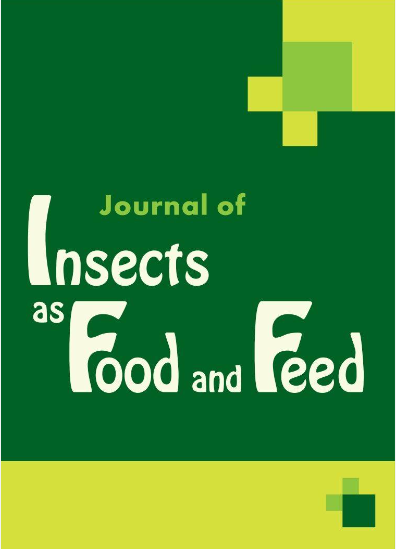Prospects of edible insects as sustainable protein for food and feed – a review
IF 3.5
3区 农林科学
Q1 ENTOMOLOGY
引用次数: 0
Abstract
The residual population growth imposes an increase in food demand, driving humans to practice agricultural intensification on a large scale. Paradoxically, food and feed production may end up causing various environmental problems. At the same time, about 2.37 billion people in the World currently lack basic food security insurance. As a consequence, alternative sources that can substantially address the demand for food and feed sustainably are needed. Insect farming may offer an environmentally friendly solution for mitigating global food and feed challenges. The article aims to explore the potential of insects as sustainable food and feed sources while assessing their environmental impact, offering innovative solutions for global food security challenges. By highlighting the benefits of edible insects, the article supports informed decision-making and promotes sustainable practices. Mass production of edible insects has seen record growth over the decade, and their demand as future proteins is projected to reach up to 3 million tons in 2030. Additionally, insect farming is evidenced to be economically viable. To meet the demand for edible insects, a breakthrough such as the internet of things can be used to scale up production and processing. However, detailed environmental impact assessments are needed to predict scenarios of large-scale insect farming. Life cycle assessments of some edible insect production systems have validated that insect farming has various beneficial environmental impacts. The utilization of edible insects as food and feed is promising for significantly improving food security and the environmental sustainability of food.食用昆虫作为食品和饲料可持续蛋白质的前景--综述
人口的持续增长带来了粮食需求的增加,促使人类进行大规模的农业集约化生产。矛盾的是,粮食和饲料生产最终可能导致各种环境问题。与此同时,目前全球约有 23.7 亿人缺乏基本的粮食安全保障。因此,需要有可持续地大幅满足粮食和饲料需求的替代来源。昆虫养殖可为缓解全球粮食和饲料挑战提供一种环境友好型解决方案。本文旨在探索昆虫作为可持续粮食和饲料来源的潜力,同时评估其对环境的影响,为应对全球粮食安全挑战提供创新解决方案。通过强调食用昆虫的益处,文章支持知情决策,促进可持续做法。在过去十年中,食用昆虫的大规模生产出现了创纪录的增长,预计到 2030 年,作为未来蛋白质的需求量将达到 300 万吨。此外,事实证明昆虫养殖在经济上是可行的。为了满足对食用昆虫的需求,可以利用物联网等突破性技术来扩大生产和加工规模。然而,需要进行详细的环境影响评估,以预测大规模昆虫养殖的情景。一些食用昆虫生产系统的生命周期评估已经验证,昆虫养殖对环境有各种有益影响。利用食用昆虫作为食物和饲料,有望显著改善粮食安全和食物的环境可持续性。
本文章由计算机程序翻译,如有差异,请以英文原文为准。
求助全文
约1分钟内获得全文
求助全文
来源期刊

Journal of Insects as Food and Feed
Agricultural and Biological Sciences-Insect Science
CiteScore
7.00
自引率
17.60%
发文量
133
期刊介绍:
The Journal of Insects as Food and Feed covers edible insects from harvesting in the wild through to industrial scale production. It publishes contributions to understanding the ecology and biology of edible insects and the factors that determine their abundance, the importance of food insects in people’s livelihoods, the value of ethno-entomological knowledge, and the role of technology transfer to assist people to utilise traditional knowledge to improve the value of insect foods in their lives. The journal aims to cover the whole chain of insect collecting or rearing to marketing edible insect products, including the development of sustainable technology, such as automation processes at affordable costs, detection, identification and mitigating of microbial contaminants, development of protocols for quality control, processing methodologies and how they affect digestibility and nutritional composition of insects, and the potential of insects to transform low value organic wastes into high protein products. At the end of the edible insect food or feed chain, marketing issues, consumer acceptance, regulation and legislation pose new research challenges. Food safety and legislation are intimately related. Consumer attitude is strongly dependent on the perceived safety. Microbial safety, toxicity due to chemical contaminants, and allergies are important issues in safety of insects as food and feed. Innovative contributions that address the multitude of aspects relevant for the utilisation of insects in increasing food and feed quality, safety and security are welcomed.
 求助内容:
求助内容: 应助结果提醒方式:
应助结果提醒方式:


